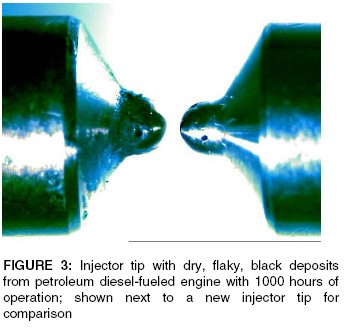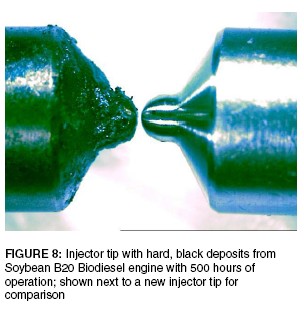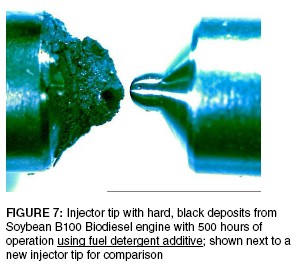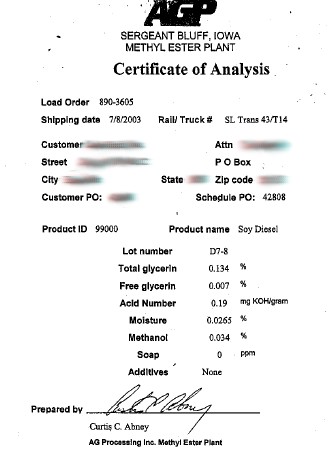</font><font color="blue" class="small">( Has anyone used biodiesel in their equipment)</font>
I'm still tractor shopping, so I haven't yet. But, I do use it in my diesel powered car (a VW TDI). You may want to try posting a message in the Biodiesel FAQ & Info forum over at
www.biodieselnow.com. One of the frequent posters there (soypwrd) does have a Kubota tractor and is using B100 in it, so I'm sure he can provide some first hand experience.
He also has a TDI, and posts to a site similar to TBN for TDI enthusiasts. Here's a
link to a recent message there concerning biodiesel usage in his Kubota.
</font><font color="blue" class="small">( Me, I'm game to try it with some of the lovely Mrs_Bob's olive oil. )</font>
I don't think you want to do this, biodiesel may be made from various vegetable oils, but its quite different than the raw vegetable oil that was the feedstock used in its production. Basically, a process called Transesterification is used produce the biodiesel, and the resulting product has the right chemical properties to be used in a diesel engine.
</font><font color="blue" class="small">( One of my customers is investigating it because he feels that the exaust will be less irritating to him than traditional fuel. He is looking at a rather conservitive mix )</font>
Sounds like he's proposing something like B5 or
B20. If he's having a problem with irratating exhaust, he may want to try B100.



